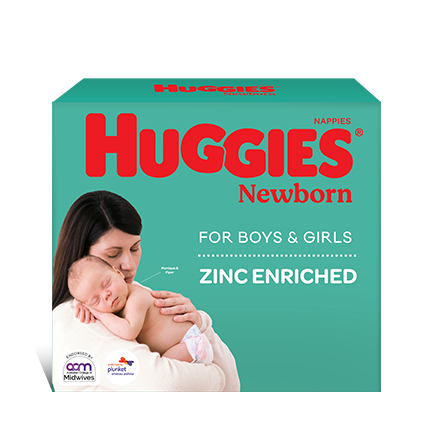Planning Your Holiday
Travelling does not have slow down or cease when you have children. You just need to travel a little differently. You will more than likely travel at a slower pace which will be set by the youngest members of the family and obviously everyone will need to compromise along the way. The best part though is enjoying the experience with your children and seeing things and the world through their eyes.
The key to a successful holiday with your kids is being prepared. This does not just refer to packing the first aid kid and your child’s favourite toy; it also means being mentally prepared. The first step is to accept that your holiday will be different from the ones you had before kids. As much as you loved spending hours wandering through quirky specialty shops and all afternoon lying on a sun lounge watching the world go by; the fact is that’s history and you need to redefine what constitutes ‘a good time’.
Mental preparation rule number 2 is “expect the unexpected”. This one should not be too much of a stretch. Every parent has learnt this lesson one way or another by their time their newborn is no more than a few weeks old. This does not mean you have to be prepared for every possible scenario it just means be mentally prepared to adapt to a changing situation. Kids get sick; it’s a fact of life and it’s so much harder when it happens away from home or in a foreign country.
The last mental preparation rule is downgrade the importance of the ‘food experience’. As a couple with no children my husband and I rated our holiday experience largely on our dining experience. Many a conversation after we came home began with remember that restaurant… That’s no longer our focus. We have accepted that a meal we all eat (even if it’s McDonalds) is good enough and the key point is the fact that we spent time together talking, laughing and enjoying our time away.
Ok, now the mental preparation is done let’s get onto the physical planning. This takes a lot longer.
Some of the key things to consider when planning a family holiday are:
- When do you go?
- Where do you go?
- Where do you stay?
When to go!
When to go can refer to your baby’s age or a particular time during the year. If you have a newborn baby you may find that planning a holiday is the last thing on your mind. Many people prefer to wait till their baby is at least 2 months old before packing up and travelling anywhere further than the local health clinic. Many airlines will not allow a newborn on board until they are at least 7 days old so you should check any restrictions with the airline and your local doctor if you plan to fly, as an infant’s immune system is no match for some of the viruses and bacteria that float around on airplanes and in airports. Most doctors recommend that you wait at least 2 weeks before flying and possibly longer if you have had a caesarean. Don’t forget your baby is vulnerable and your body is still healing. Sometimes the healing process can take a while and you don’t want to aggravate any physical issues.
Health risks noted, there are many benefits to travelling with a newborn. They stay in one spot; you won’t really understand the value of this until you have spent 15 hours on a long haul flight with 2 active toddlers. Young infants also sleep a lot so you can usually rely on them to sleep through a good part of a flight or long drive. The rocking motion and the humming noise of both a plane and a car should help you out. You can also hold onto the restaurant dining experience for a bit longer. A baby capsule or pram alongside your table with a sleeping bub in it means you can both enjoy a nice meal as long as you don’t take too long.
Travelling with a baby aged between 6-12 months is a bit tricky. On the one hand they are a lot more alert and aware of their surroundings and so are enthralled by the experience. The down side is they are also on the move and not likely to be thrilled about spending long periods in one spot. This may be the time to take short breaks away. A few long weekends away may be better than one long trip. You should also try to keep a little bit of their routine in place and allow for some unstructured play time to help them unwind. The go,go,go holiday is not really for a baby in this age group.
Travelling with a toddler or more than one child is a whole new experience. The upside is seeing the pure wonder and excitement on their faces as they see or do something new. You can also reason with then to a degree and allow them to help you plan the trip. This helps kids feel included and have a small degree of control. The tricky part is of course the fact that a toddler’s attention span won’t even last as long as you are guaranteed to spend on the tarmac or at your local petrol station fuelling up before you hit the road. If your kids are anything like mine they are also fussy eaters, full of beans all the time and need to go to the toilet every few minutes. Accept the fact that fast food is ok more than usual on holidays and that your trip will be a glorified tour of all the public toilets in the region and you’ll have a great time.
Another ‘when to holiday with kids consideration’ is the time of year. Think carefully about the weather at your planned destination. Extremes of heat or cold are not going to help anyone. Ask if it is monsoon or rainy season so you don’t get washed out. Check the local weather leading up to the trip and investigate indoor activities if it is likely to be cold or wet. Pack a few multi weather items but don’t stress too much you can buy t-shits and jumpers if you need to. Buy the ones from the tourist shops and you’ll find they double up as good souvenirs as well.
Local school holidays at your destination should be avoided where possible with young children. Places are booked solid and everything becomes more expensive like flights, accommodation, food etc. It also means there are longer queues and waiting times for almost everything. This is not good policy for young children and will only frustrate the whole family. Also try and visit attractions like theme parks, zoos, museums etc during the week rather than weekends when they are more crowded. Not only can you then change your baby safely and in a clean space anywhere but you can also put a few down on the floor and eat lunch if there is no seat to sit on anywhere around.
Where to go!
So you have an idea of when you would like to go, now you need to think about where. Time, money and your child’s age will be key in making this decision. A couple of things to think about are:
- Avoid countries that need extra vaccinations if you have young children.
- Make sure there is a doctor or respectable hospital nearby if you need one and ensure they speak English or that you are comfortable conversing in the local language.
- Find out what child friendly facilities they have so you do not need to pack your entire home into your suitcase. Ask about cots, pram hire, night lights, high chairs etc.
- Investigate what child friendly activities are available both indoor and outdoor.
Take some time to investigate. Request brochures on preferred destinations; ask friends and family who have been there already what they thought, look up travel websites and local websites and check flight availability if you are flying. Just about every tourist spot has an official website and they are a great asset to you.
Most importantly have a look at your selected destination through your child’s eyes. Uluru is fascinating to me and I can’t wait to visit there with the family, but it’s just a big rock in the sun to my 2 year old.
Last Published* May, 2024
*Please note that the published date may not be the same as the date that the content was created and that information above may have changed since.























